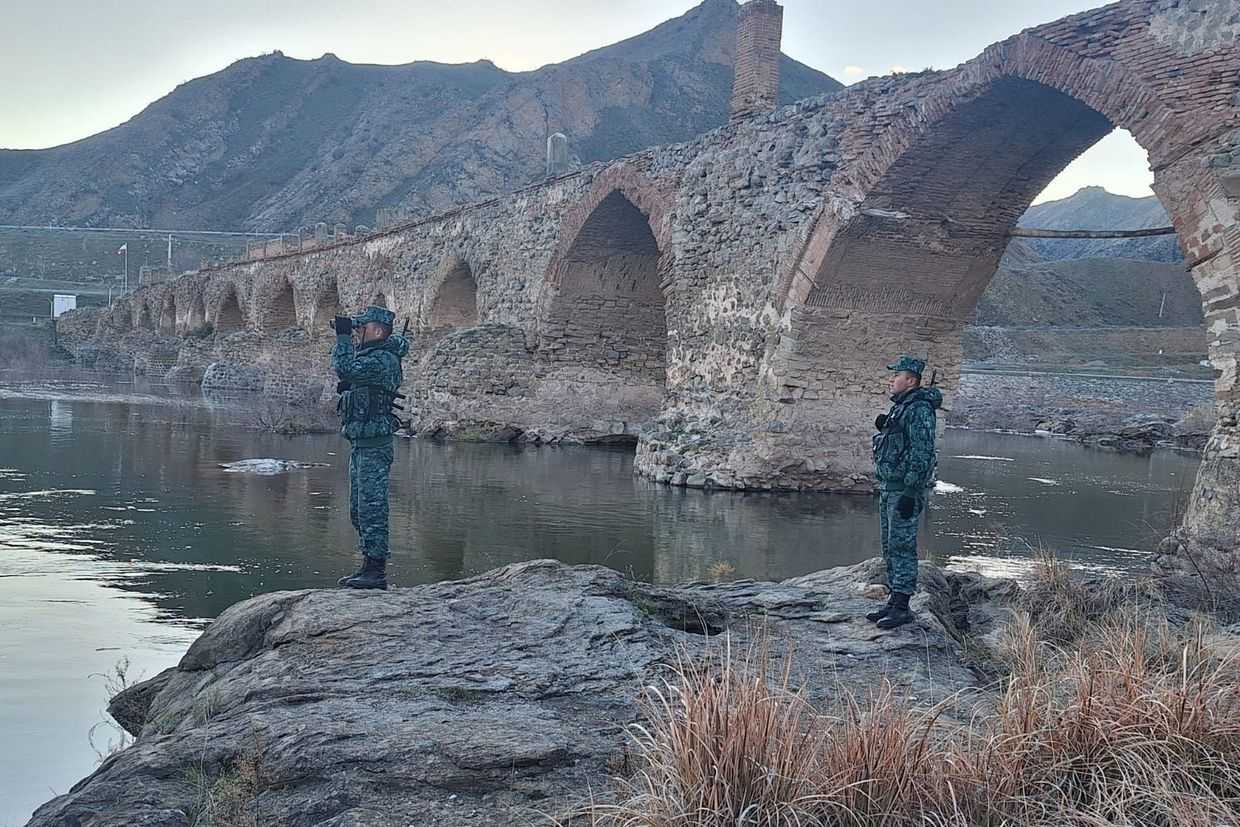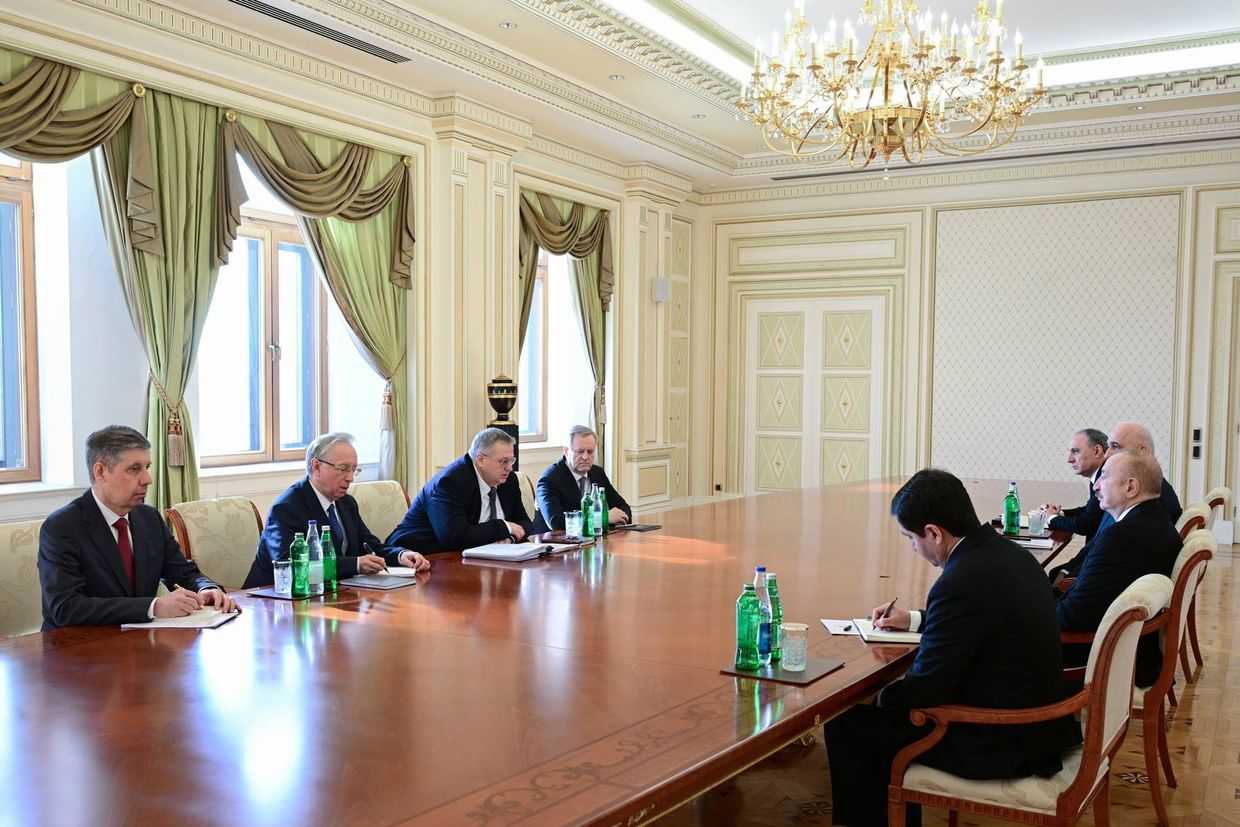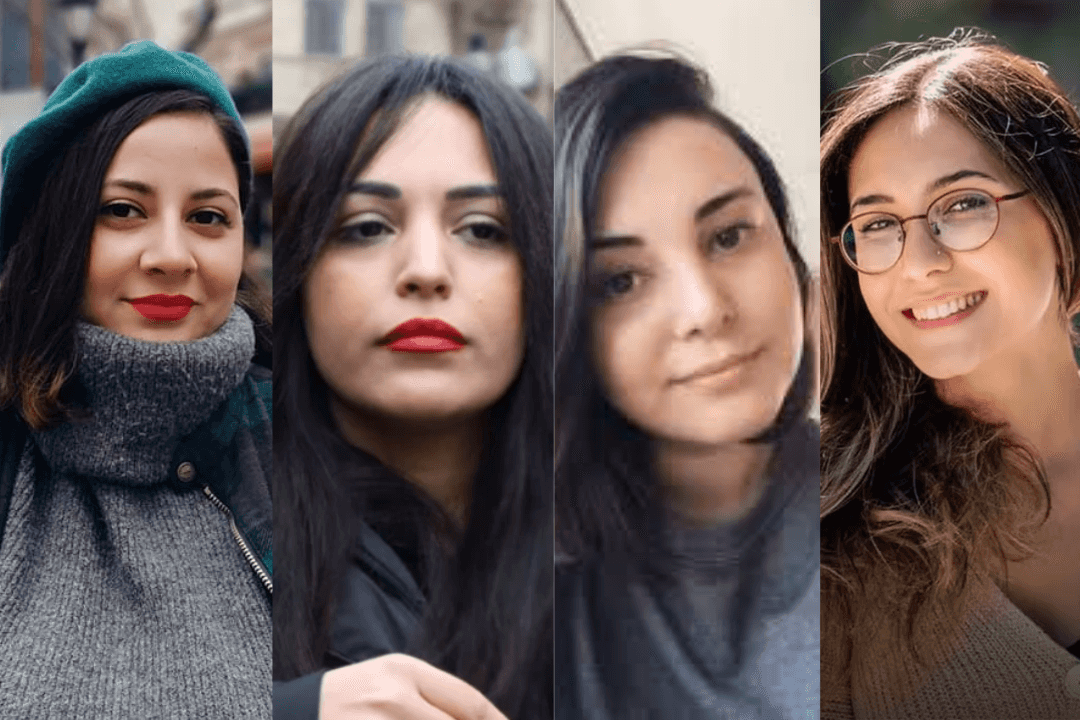
 Despite the veneer of patriarchy and the respect for the elderly, the life of old people in Azerbaijan is hard, especially when they are lonely. With an average pension of $100, they can only hope for help from shelters, kind neighbours, and volunteers.
Despite the veneer of patriarchy and the respect for the elderly, the life of old people in Azerbaijan is hard, especially when they are lonely. With an average pension of $100, they can only hope for help from shelters, kind neighbours, and volunteers.
Global trends
Azerbaijanis consider themselves a patriarchal country with all the attributes of one, including respect for the elderly and care for the retired.
But reality is sometimes quite different from the announced tradition. There are abandoned, lonely old people in Azerbaijan, who are not being shown respect. According to sociologist Umay Akhundzade, this happens because tradition is just an ideal of conduct.
She says there is a disconnect between reality and the ideal because new generations are becoming increasingly mobile and the number of nuclear families is increasing. Such families include only parents and children, instead of several generations with a clear hierarchy of grandfather–father–son.
‘The whole world is seeing the increase in nuclear families with two generations, the decrease in the number of children in families, and the increase in migration of young people. These global trends are affecting Azerbaijan as well, and are creating new realities for old people’, she said.
She also points out that the trends of nuclear families and mobility are outpacing the emergence of new ways to take care for the elderly. ‘Especially considering that the population of Azerbaijan is not old, and so it’s not yet normal to take care of the elderly’, she notes.
Social and economic exclusion
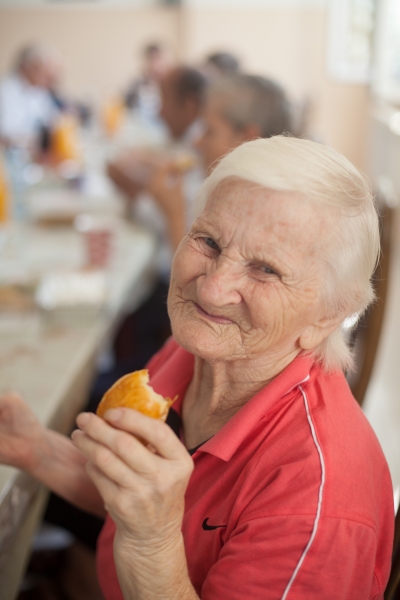
The country’s social policy also doesn’t correspond to the ideal of the patriarchy. In 2017 there were 378,000 people older than 70 in the country, and 1.3 million pensioners. The average pension is just ₼192 ($112). As of 2017, the subsistence minimum is ₼155 ($91), and the average salary is ₼500 ($294).
On 1 July, the government raised the age of retirement for both men and women to 65. According to economist Natig Jafarli, pensions have been rising slower than inflation for the past three years. Since 1999 pensioners no longer get discounted public transport or medicines.
Volunteer and social activist Sabina Guliyeva says ‘in theory, I know of systems where old people are assigned nurses who come every day and sit with them for an hour. Unfortunately we don’t have such a system, which would help lonely old people’.
‘We are now dealing with a problem one old lady has: she can’t see and lives with her grandson, who is an alcoholic. He often abandons her for several days. She stays alone at home. If the neighbours feed her — good, but if not — she stays hungry’, Guliyeva says.
There are government-run shelters for homeless elderly people, but Guliyeva says that conditions in them are dreadful.
There are laws in Azerbaijan regulating custody of the elderly. So, according to the Civil Code, someone whose material and housing situation allows it can be the guardian of an elderly person. Elderly people may at any time break the custody agreement.
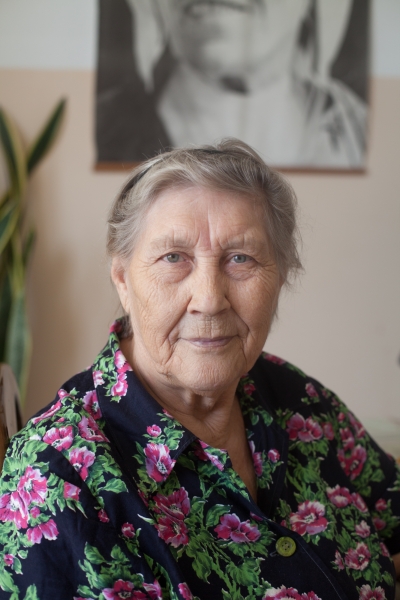
According to Guliyeva, there are very few nursing homes in the country. ‘There is a nursing home in Bilgah (a village not far from Baku). Conditions there, to put it mildly, are horrible. I have never tried to place anyone there. There is also the department of gerontology at the Psychiatric Hospital in the village of Mashtagha (a suburb of Baku). Old people also live there, but they do not have mental disabilities, they simply have nowhere to live. Conditions there are also not very good, the beds stand in the corridor. The building is designed for 60 people, but 90 live there’.
Last year, there were discussions among experts about custody over older people. Chairman of consumer rights group the Union of Free Consumers, Eyyub Huseynov, a change in the law could help protect elderly people from fraud.
WWII veterans
The conditions WWII veterans in the country is slightly better. According to government statistics, there are 353 of them in the country, and each year a special presidential decree grants them a one-time allowance.
This year, this was ₼1,000–1,500 ($585–880) depending on merit. Veterans’ widows received ₼500 ($300), which is more than the average pension in the country.
In culture, veterans are nominally honored; books and memoirs about them are often published. One veterans of the war, Aleksandr Gritchenko, a military journalist, at 95 is still presenting reprints of his memoirs.
Every year on 9 May, a number of organisations arrange meetings with veterans and give them gifts.
But the reality for veterans in the country is quite different from the formal gestures of respect.
‘No one wants to take care of an old helpless woman’
Adeliya Aghakishiyeva is almost 90 years old, she saw the entirety of WWII. In 1941 Adeliya completed a medical assistant’s course and in 1942 she was sent to the front as a nurse.
She lives alone. Last year she had fractured her hip, and is now bedridden. Some acquaintances took her into their home and looked after her so in return she registered her apartment in their name. But she could not bear to stay in their home, so she returned to her own flat.
‘I’m ready to give my apartment to someone who would be responsible for looking after me. But no one wants to take care of an old helpless woman’, Adeliya says. She has a hired nurse, whom she pays ₼300 per month ($175). Her pension allows that.
In general she is content with her pension: ‘I receive ₼300. ₼200 is my usual pension and ₼100 is the presidential one’. The majority of veterans are people over 80, who need constant care, and not only money.
Seven-square-metre house
With weak support from the state and the reduction of families of the old type, one of the few sources of assistance for the elderly are volunteers.
Such volunteers also helped Sofya Sokolova. The 89-year old women who passed through concentration camps does not have veteran status. Her pension is only ₼160 ($95).
Together with her brother, sister, and mother, she lived in the centre of Baku in a small bungelow. Eventually she buried all her relatives, being left alone. She has no children.
Her living conditions only got worse. The roof started leaking, her things started getting wet because they were packed in boxes, since there is no more space. The bathroom is outside, and the time spent in concentration camps has had an effect on her body: her legs hurt, and it was becoming hard to get out of the house.
The head of social services at the Church of Archangel Michael in Baku, the late Aleksandr Fedorovich Antropov, himself a veteran of the Karabakh war and curator of veterans of the Great Patriotic War, organised repairs for Sokolova’s house. Volunteers collected money, covered the roof, and added a second room and a bathroom to the house. Before this, the house was only 7 square metres.
‘Thank God, I live well and don’t complain’, the old lady says. Volunteers are helping her out, visiting her often and buying groceries. She does not leave the house herself because of pain in the legs, but she tries to do household chores herself.
‘Human company is much more important’
Older people often remain on the street. If they’re lucky, they will be taken to the Shelter of Mother Teresa of the Nuns of the Catholic Church in Baku. The rector of the Catholic Church, Father Vladimir, said that the land for the shelter was provided by the president in a suburb of Baku, where a small mansion was built.
The shelter has operated since 2006. It houses elderly people who do not have a home or relatives. ‘People who have lost everything come here. They either come themselves or someone brings them, or the sisters see someone on the street and bring them to the shelter. Often these are unhealthy people, and often without documents, which they have lost. They are often elderly people who can not take care of themselves’, says the rector.
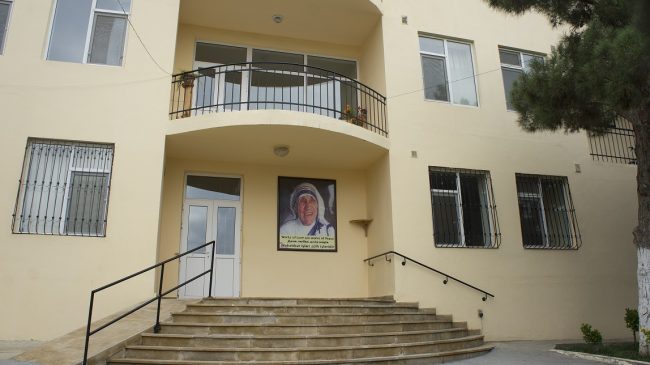
He adds that most people in the shelter have problems in their families. The shelter is quite small and takes care of 20 people, which according to father Vladimir, is already a lot. In addition to old people, there are also people who found themselves in difficult situations. They are taught to take care of the old people so that they can start taking care of themselves.
‘Sometimes they stay to help, but the conditions in the shelter are difficult, and not everyone is capable of taking care of the elderly’, he said.
According to the rector, this year, like all other religious communities, they were given financial aid from the state: ‘The sisters do not ask themselves, they are not allowed to ask. But they do not participate in any projects. So if someone wants, they can help financially’.
‘There are people who help’, says the abbot. ‘Sometimes older people need treatment, and doctors go to meet them when they are asked by the sisters. If an elderly person dies, they are buried at the nearest cemetery at the expense of the shelter.’
But as father Vladimir points out, the biggest problem for the elderly is loneliness. In his opinion, human company is much more important than owning a house, or even good health.
This article was prepared with support from the Friedrich-Ebert-Stiftung (FES) Regional Office in the South Caucasus. All opinions expressed are the author’s alone, and may not necessarily reflect the views of FES.



